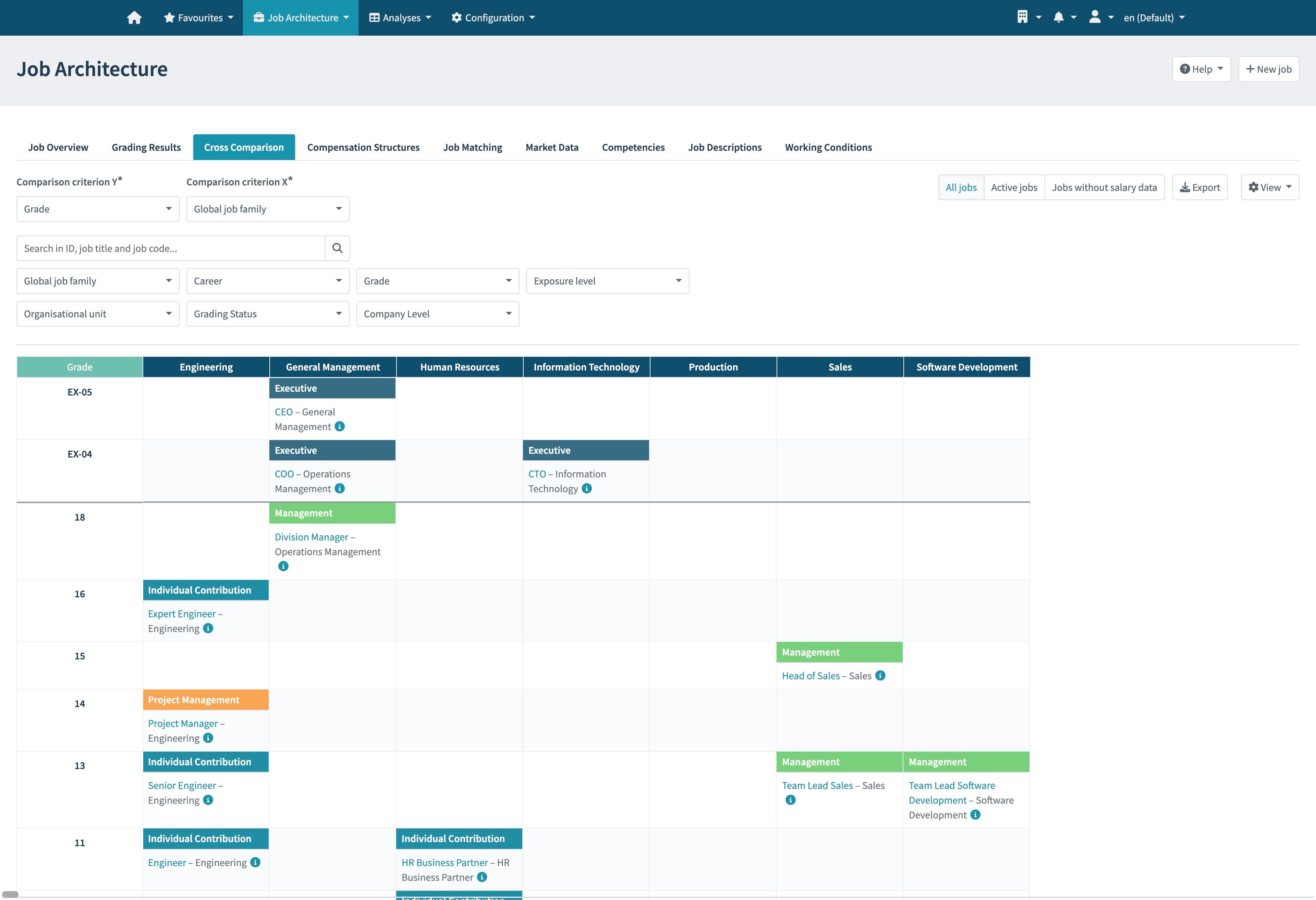Summary
The Research and Development job family is responsible for leading and conducting research to support the development of new products, processes, and services. They work closely with other members of the R&D team, as well as cross-functional teams, to identify opportunities for innovation and to develop and implement plans to bring new products and services to market. Job holders are also responsible for staying up-to-date on the latest industry trends and technologies and for sharing their knowledge with the team to ensure that the company is always at the forefront of innovation.
Typical activities
- Initiates design and development of technology research projects.
- Oversees all research in a sub part of the organisation.
- May participate in development of patent applications.
- Maintains knowledge of state-of-the-art principles.
Synonyms or related job titles
R&D, Scientist, Researcher
Please match in this collective family all specialized Research and Development (R&D) jobs that cannot be assigned to one of the above-mentioned families. Competencies from the parent family will be shown. A selection of parent family-specific Benchmark Job Matches is available and can be selected manually. The availability of benchmark job matches depends on the survey vendor chosen.
Summary
The Life Science job family consists of positions that perform professional and scientific work in the life sciences, including research, diagnosis, and treatment in the areas of biology, chemistry, and other life sciences.
Job holders use a variety of techniques, including laboratory and field work, to study living organisms and their interaction with the environment. They develop new and improved techniques for studying living organisms and their interactions with the environment and solve problems in areas such as human health, agriculture, and pollution.
Typical activities
- Undertakes scientific research to further our understanding of living organisms, their evolution, and their interactions with the environment.
- Conducts experiments and analyzes data to understand the function and behavior of cells, tissues, organs, and systems.
- Studies the structure and function of genes and proteins to understand how they contribute to the development and function of living organisms.
- Investigates the role of carbohydrates, lipids, and other bio-molecules in the life processes of cells and organisms.
- Understands the mechanisms of disease and develops new treatments and therapies to improve human health.
- Communicates findings to the scientific community and the general public through scientific papers, presentations, and outreach activities.
Synonyms or related job titles
Bacteriologist, Biochemist, Biologist, Biotechnologist, Botanist, Microbiologist, Molecular Biologist
Summary
The Physical Science job family consists of positions that involve performing professional physical science work in one or more of the following areas: atmospheric science, chemistry, geology, meteorology, oceanography, or physics.
Job holders conduct research; collect, analyze, and interpret data; develop new theories and models; and apply physical science principles and methods to solve problems in areas such as engineering, environmental protection, medicine, and the social sciences.
Typical activities
- Conducts research into the physical properties of materials and phenomena.
- Develops theories and models to explain physical phenomena, experimental results and predict future behavior.
- Plans and carries out experiments to test hypotheses about the nature and behavior of matter and energy.
- Analyzes data to identify trends and patterns.
- Uses various software and computer modelling packages to test ideas and develop them further.
Synonyms or related job titles
Physicist, Physics, Astronomer, Astronomy, Chemist, Chemistry, Earth Scientist, Earth Science
Summary
The Safety and Compliance job family is responsible for ensuring that research and development activities are conducted in a safe and compliant manner. This includes developing and implementing safety protocols, conducting safety audits, and investigating accidents and incidents.
Job holders also provide training and education on safety topics, and work with other departments to ensure that research and development activities are conducted safely.
Typical activities
- Conducts regular audits of research and development operations to identify any potential safety or compliance concerns.
- Develops and implements policies and procedures to ensure compliance with all safety and regulatory requirements.
- Educates and trains research and development staff on safety and compliance issues.
- Investigates incidents and accidents involving safety and compliance issues in research and development.
Synonyms or related job titles
Compliance, Risk and Safety
Summary
The Laboratory Services job family provides support for the operation of clinical and research laboratories. This includes specimen processing, testing, and analysis; quality control and assurance; and research and development.
Job holders are responsible for ensuring that laboratory procedures are followed and that results are accurate. They perform diagnostic testing in medical or scientific laboratories, with their focus split between clinical and research and development. They also maintain laboratory equipment and supplies, and perform quality control checks. Their work may vary considerably depending on client, employer, and project. The job holder may interact directly with patients depending on lab focus.
Typical Activities
- Maintains laboratory equipment and makes sure lab supplies are available.
- Performs all tests and procedures in accordance with established protocols.
- Performs calculations and advanced analysis on lab observations.
- Performs routine and specialized tests on patient specimens.
- Follows strict safety rules and procedures to eliminate contamination of specimens.
- Disposes of all hazardous materials in accordance with established procedures.
Synonyms or related Job Titles
Lab Assistant, Lab Technician, Lab Manager
Summary
The Geoscience job family consists of positions that are responsible for performing professional work in the earth sciences, including geological, geochemical, geophysical, and hydrological studies.
Job holders are responsible for collecting and interpreting data to determine the nature, distribution, and history of the earth's crust and its mineral and water resources. They conduct research on the physical, chemical, and biological processes that shape the earth's surface and its environment. They use their research to improve the quality of human life as well as discover valuable natural resources such as water, minerals, gas and oil.
Typical activities
- Conducts surveys and sample collection to obtain information for research.
- Investigates the components of the Earth, including its water systems.
- Discovers valuable natural resources available.
- Identifies any environmental dangers to human life.
Synonyms or related Job Titles
Geology, Hydrogeology, Hydrology, Sampling, Surveyors, Geophysics, incl. Geological Information Systems
Summary
The Seismology job family is responsible for study earthquakes and seismic waves that move around the planet. Their research is valuable in identifying subsurface problems and understanding changes to the Earth's surface, such as the formation of new structures and islands.
Job holders esp. in Oil & Gas exploration, support the exploration of crude oil, natural gas and geothermal deposits by using sound waves to obtain a seismic echo. They analyze the reflection or refraction of sound waves at the boundary surfaces of different layers of rock and geological formations to determine the size and depth of crude oil and natural gas deposits.
Typical activities
- Measures characteristics of the Earth, such as gravity or magnetic fields, using equipment such as seismographs, gravimeters, torsion balances, or magnetometers.
- Analyzes data gathered from seismometers and other instruments to determine the location, magnitude, and nature of seismic activity.
- Travels around the planet to investigate and identify seismic changes to the planet.
- Researches earthquakes and seismic waves to gain a better understanding of the planet and its systems.
Synonyms or related job titles
Seismologist
Summary
The Materials Science and Research job family is responsible for the development and characterization of new materials, as well as the study of existing materials.
Job holders challenge the physical properties and characteristics of materials under stress, strain, tension, heat, corrosion, impact, fracturing and other tests. They research and study the structures and chemical properties of various natural and synthetic or composite materials, and will determine ways to strengthen or combine materials or develop new materials with new or specific properties for use in a variety of products and applications.
They may also evaluate materials and develop machinery and processes to manufacture materials for use in products that must meet specialized design and performance specifications. Destructive and non-destructive testing must be conducted to complete research.
Typical activities
- Identifies, evaluates and selects materials for new products or processes.
- Develops or improves manufacturing processes for new or existing products.
- Investigates the properties and structure of materials at a microscopic or atomic level.
- Develops new methods or products to exploit the unique properties of materials.
- Designs or selects materials for specific purposes, such as strength, electrical conductivity or resistance to heat.
- Performs non-destructive and destructive testing on materials such as increasing strain and stress until a material's failure.
- Analyzes data from tests on materials to determine the best ways to improve the performance of products or processes.
- Advises engineers and other professionals on the best materials to use for specific purposes.
Synonyms or related Job Titles
Materials Development , Materials Research, Materials Engineer, Materials Scientist
Summary
The Metallurgy job family includes occupations concerned with the physical and chemical properties of metals and alloys, their production, and their use in products.
Job holders use their knowledge of metals and alloys to develop new products and processes, to improve existing products and processes, and to control the quality of metals and alloys. They study the process of extracting metals from their ores and the refining of these materials, which can in turn develop innovative ways to producing steel and aluminium, for example. They also study the physical properties of metals and alloys and what affects their physical state and appearance.
Typical activities
- Conducts research on the physical properties and applications of metals and alloys.
- Develops new ways to extract and refine metals from ores.
- Studies the structure and behavior of metals at the atomic level.
- Develops new alloys with improved properties.
- Designs processes for the production of metals and alloys.
- Analyzes samples of metals and alloys to determine their composition and properties.
Synonyms or related Job Titles
Chemical Metallurgist, Physical Metallurgist, Process Metallurgist



